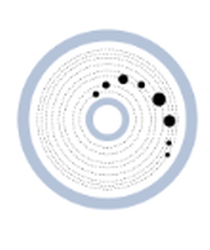
Wykład otwarty
Image-guided FLASH Proton Therapy
prof. Karol Lang
University of Texas at Austin
10 czerwca 2024 11:00
ul. Pasteura 5, sala 0.06
W najbliższy poniedziałek, 10 czerwca 2024 r. o godz 11.00 w sali 0.06 odbędzie się ostatnie w tym roku akademickim Konwersatorium im. Jerzego Pniewskiego i Leopolda Infelda Wydziału Fizyki UW.
Wykład zatytułowany: "Image-guided FLASH Proton Therapy"
wygłosi: prof. Karol Lang (University of Texas at Austin)
Skuteczne leczenie chorób nowotworowych wymaga precyzyjnej diagnostyki i terapii. Podczas Konwersatorium poznamy najnowsze możliwości, jakie daje w tym aspekcie pozytonowa tomografia emisyjna (PET).
Językiem wykładu będzie angielski.
Przed Konwersatorium, od godz. 10.30, zapraszamy na nieformalne dyskusje przy kawie i ciastkach w holu przed salą 0.06.
Przesyłamy pozdrowienia,
Barbara Badełek
Jan Chwedeńczuk
Jan Kalinowski
Jan Suffczyński
Abstract:
=======
Image-guidance and dosimetry of the in-vivo proton range verification is perhaps one of the most underinvested aspects of radiation cancer treatment. The scarcity of sensitive instruments and treatment protocols for precision monitoring of effects of beam radiation leaves much room for improvement. This is despite that such measurements may dramatically enhance the treatment accuracy and lower the post-exposure toxicity thus improving the entire outcome of cancer therapy.
In this talk, we will discuss our effort on designing and building of an in-beam time-of-flight positron-emission-tomography (PET) scanner to be tested in pre-clinical studies at Proton Therapy Center of MD Anderson Cancer Center in Houston. We will also discuss selected results of recent experiments with FLASH proton beam irradiations of phantoms and other related ideas towards improving and expanding the use of PET detectors, including the total body imaging. This endeavor has been made possible by the support of the U. of Texas – Portugal program at the University of Texas at Austin.
Karol Lang’s mini-biosketch:
======================
Karol Lang is the Jane and Roland Blumberg Professor of Physics at the University of Texas at Austin, where he teaches and conducts research in experimental particle physics and in nuclear medical imaging. He received his M.Sc. in Physics from the University of Warsaw, and his Ph.D. from the University of Rochester. He has participated in experiments conducted at accelerators at Fermilab, SLAC, BNL, and CERN. Currently, he participates in the Fermilab program to study neutrino oscillations and in experiments designed to search for neutrinoless double beta decay. As a spinoff of this research, he is also involved in an initiative to employ high sensitivity positron emission tomography (PET) scanners for image-guided proton therapy.
